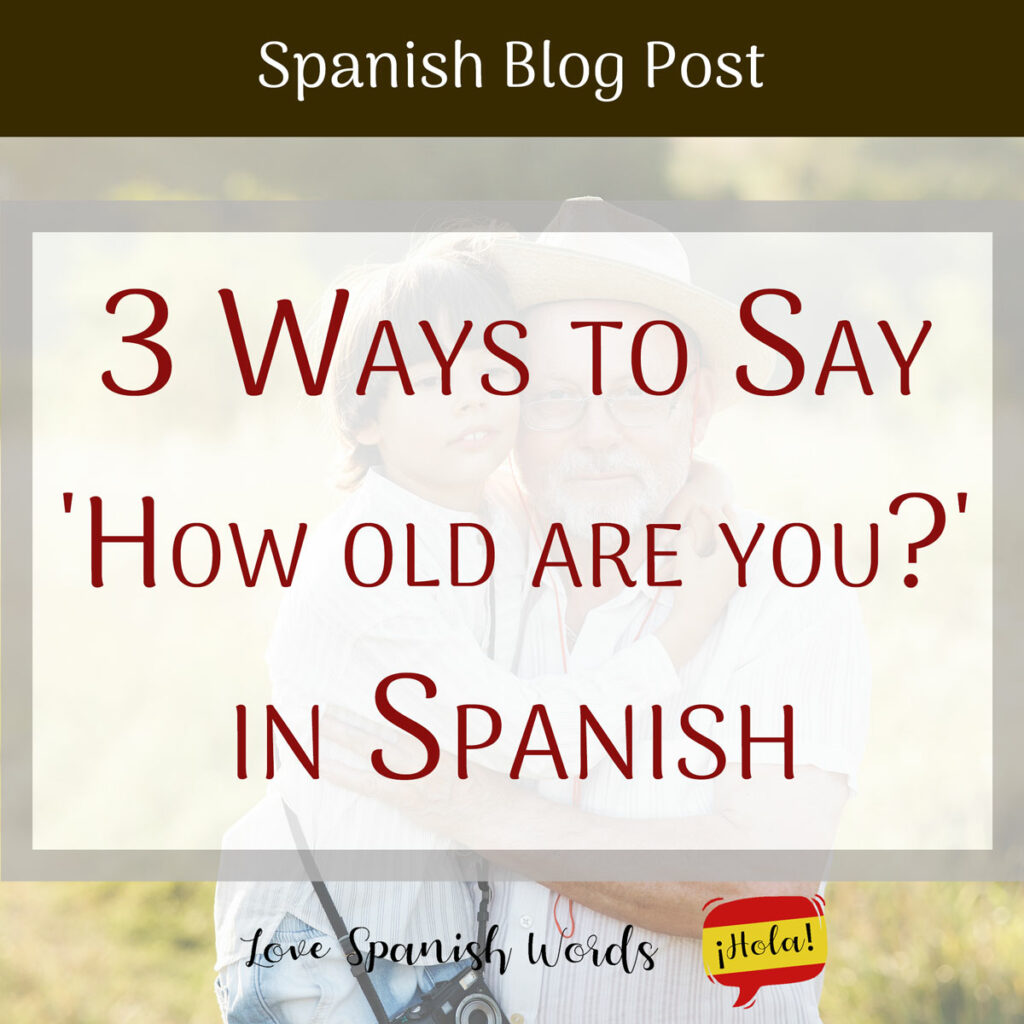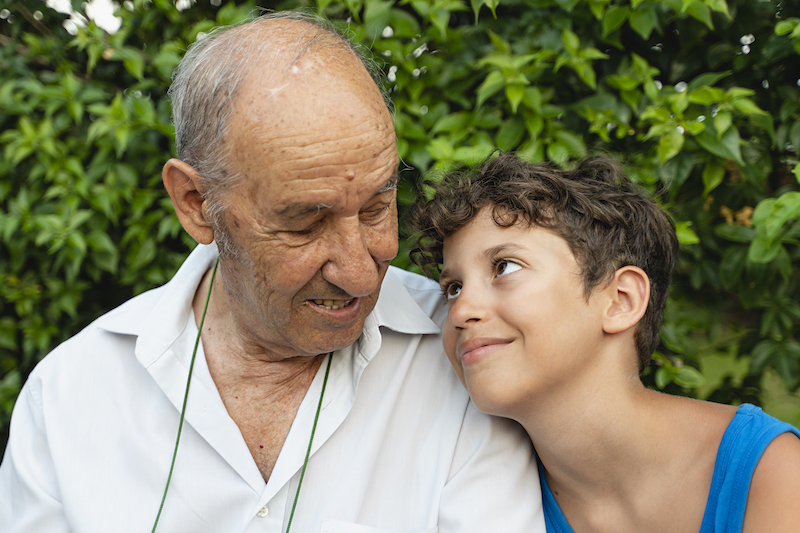When you’re just getting to know someone, one of the most basic and common questions you will come across in Spanish is “How old are you?” Fortunately, it’s an easy phrase to learn because there aren’t too many ways to ask this question in Spanish.
Today, we will cover three different ways to ask someone their age and how to respond. We will also learn how to ask someone about their age in past situations, such as “How old were you when you lived in Italy?” Read on to learn the different ways to say “How old are you?” in Spanish.

Cuántos años tienes?
The literal translation of ¿Cuántos años tienes? is “How many years do you have?” However, in English, we ask someone’s age by saying “How old are you?“
¿Cuántos años tienes? is the most common way to ask someone’s age in Spanish.
In Spanish, we address the second person in two ways. The first is tú, which is used informally with siblings, friends, and co-workers. The second way is usted, which is used formally when addressing someone like an older adult, a boss, or anyone you want to show respect toward. For this formal second person, you would ask, ¿Cuántos años tiene? without the s at the end.

Tip: The word años (years) without the squiggly line on top of the n (which we refer to as a tilde or virgulilla) is a completely different word in Spanish. Ano means anus, and anos is the plural version which means anuses.
It’s important to include the tilde above the n and to pronounce the word correctly so people don’t think you’re talking about something else. You don’t want to ask someone how many anos they have! Interestingly, in Portuguese, anos without the tilde means years.
¿Cuál es tu edad?
¿Cuál es tu edad? directly translates to “What is your age? This is the least common phrase out of the three, but you might occasionally hear it asked. A place you might hear this question is an office where you fill out paperwork.
The person helping will ask one of the following, ¿Cuál es tu edad? or ¿Cuál es su edad? The first way is informal and the second way is formal.
¿Qué edad tienes?
¿Qué edad tienes? has an odd literal English translation, “What age do you have?” Although this isn’t an expression used in English, in Spanish it’s quite common.
The reason for this difference lies in how we consider the question of age. In English, we tell someone our age by saying, “I am 25 years old.” Here, age is something we are.
In Spanish, however, age is something we possess, not something we are. Therefore, we use the verb tengo (to have). Tengo 25 años translates to “I have 25 years.” This is why you can ask ¿Cuántos años tienes? (How many years do you have?) and ¿Qué edad tienes? (What age do you have?). One question asks how many years we possess, and the other asks what age we possess.

How to Respond
As mentioned above, in Spanish we refer to age as something we possess. Therefore you will have to use tengo (I have) when telling someone your age. Below are a few ways to respond to someone when they ask your age.
- Tengo 32 años. = I am 32 years old.
- Tengo 21. = I’m 21.
- Tengo casi 43 años. = I’m almost 43 years old.
- Voy a cumplir 18 años el proximo mes. = I will be 18 years old next month.
It’s also normal to answer with just a digit and no extra words.
How old were you?
Many Spanish conversations you’ll have will likely include questions about age. For example, you might want to know how old someone was when they moved from one city to another. Let’s go over three ways to ask how old someone was in the past tense.
¿Cuántos años tenías?
The literal translation of ¿Cuántos años tenías? is “How many years did you have?” In English, we say “How old were you?” If you want to ask formally, you would say ¿Cuántos años tenía? without the s at the end. Here are some examples:
- ¿Cuántos años tenías en esa foto? = How old were you in that picture?
- ¿Cuántos años tenías ese año? = How old were you that year?
¿Qué edad tenías?
¿Qué edad tenías? translates in English to, “What age did you have?” It’s used in informal situations. For formal situations you ask, ¿Qué edad tenía?
The only difference between ¿Cuántos años tenías? and ¿Qué edad tenías? is that one question asks about years (años) and the other asks about age (edad). Both questions can be answered using the past tense verb to have, tener. For either question you can respond with a phrase similar to “Tenía 5 años cuando mi familia se mudó a estados unidos.” (I was 5 years old when my family moved to the United States.) For the response, you should use the word años instead of edad.
¿Cuál era tu edad?
¿Cuál era tu edad? is another way to ask how old someone was in the past. The literal translation is “What was your age?” The formal version of this question is, ¿Cuál era su edad?
This question can also be answered using the verb tenía (I had). For example, “¿Cuál era tu edad cuando tuviste a tu hija?” (How old were you when you had your daughter?) Tenía 27 años. (I was 27 years old). Again, you will use the word años instead of edad for the response.

